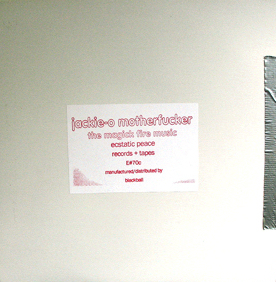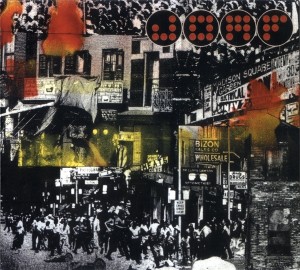Jackie-O Motherfucker – The Magick Fire Music Ecstatic Peace! E# 70c (2000)
Much like Earth gained notoriety on Earth 2: Special Low Frequency Version (1993) playing heavy metal rock at a glacial pace, to the point that the same chords take on a different character, Jackie-O Motherfucker played long jams that vaguely resembled so-called post-rock acts of the preceding decade (Dirty Three, Gastr del Sol, Godspeed You! Black Emperor) but slowed down and with jazzier improvisational choices. The opening song “Extension” is like “Blind Willie” from Sonny Sharrock‘s Guitar (1986), played at a snail’s pace, with an amiable, meandering progression like Sharrock’s “Portrait of Linda in Three Colors, All Black” from Black Woman (1969). The slow tempos also give this album an atmospheric quality, not quite to the point of being ambient, “furniture” music, but to the point that the percussive and rhythmic qualities of the playing subside. The band’s later recordings leaned further toward both folk music and juxtapositions of disparate genres. The way this music takes its time to unfold is refreshing. It is also cautiously optimistic. Worth seeking out.


